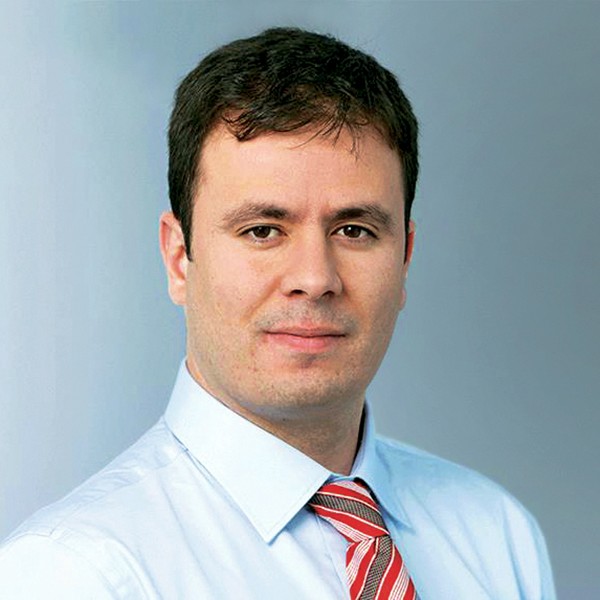Savas Tay is a Professor of Molecular Engineering and is also a member of the Institute for Genomics and Systems Biology at the University of Chicago. He studies how cells communicate with each other using signaling networks and develops single-cell and single-molecule technologies for high-throughput analysis and computational modeling for complex biological systems.
Prof. Tay has received the European Research Commission ERC Starting Grant (2013) and Paul G. Allen Distinguished Investigator Award (2019). He has published extensively in scientific journals including Nature, Science, Cell, PNAS, Nature Methods, Molecular Cell, Science Advances, and others. His work in engineering and biology was featured in many media outlets, including BBC, Bloomberg News, CNN, Discovery Channel, National Geographic, National Public Radio, Daily Telegraph, Nikkei, MIT Technology Review, EMBO Seven Stones, and Faculty of 1000 Biology.
Prior to joining the University of Chicago, he was an Assistant Professor at the Department of Biosystems Science and Engineering at ETH Zurich. Prof. Tay received his PhD in Optical Sciences from the University of Arizona and conducted postdoctoral research at Stanford University Bioengineering Department.
Savas Tay is a systems biologist and bioengineer working at the interface of biology, physics, and engineering. His overarching goal is to understand how biological systems work from an engineer’s perspective and use this knowledge to manipulate cells and gene pathways to help cure diseases. On the technology front, his lab develops high-throughput and high-content single-cell analysis devices by integrating microfluidics, computation, and optics. Recently, Tay Lab developed a single-cell proteomics method that enables simultaneous measurement of proteins, protein complexes, and mRNA in thousands of individual cells.
A main focus for Tay Lab is to understand the role of molecular pathway dynamics in cellular information processing, pathogen sensing and recognition, and cellular communication. Tay Lab performs precision dynamic measurements on living cells and develops predictive models of complex systems like the immune system. Such models can serve as a rapid test-bed for drug studies and genomic perturbations.
Technologies developed by the Tay Lab create realistic microenvironments that mimic living tissue and measure dynamic processes in individual cells with extreme precision and throughput. Tay is also interested in translating such technologies to real-life biomedical applications.
Dr. Tay's work on NF-κB, a key transcription factor that regulates thousands of immune genes, was published in leading scientific journals such as Nature, Cell, and PNAS. He discovered that cells activate NF-κB in an all-or-none fashion, similar to a digital switch. Recently, he discovered that molecular noise improves cellular signal transmission and showed how oscillatory inputs control transcriptional dynamics by synergizing with molecular noise. His studies showed how local signaling dynamics regulate gene expression in space and time.
Selected Publications:
L. Vistain, H. Van Phan, B. Keisham, C. Jordi, M. Chen, S.T. Reddy, S. Tay. "Quantification of extracellular proteins, protein complexes and mRNAs in single cells by proximity sequencing", Nature Methods; (2022)
J.M. Matthews, B. Schuster, S. Kashaf, P. Liu, M. Bilgic, A. Rzhetsky, S. Tay. "OrganoID: a versatile deep learning platform for organoid image analysis", PLOS Computational Biology; 18(11): e1010584. (2022)
M. Son, T. Frank, T. Holst-Hansen, A. Wang, M. Junkin, S. Kashaf, A. Trusina, S. Tay. "Spatiotemporal NF-kB dynamics encodes the position, amplitude and duration of local immune inputs", Science Advances, 8(35), eabn6240. (2022)
A. Wang, M. Son, E. Kenna, N. Thom, S. Tay. "NF-kB memory coordinates transcriptional responses to dynamic inflammatory stimuli", Cell Reports; 40(7):111159. doi: 10.1016/j.celrep.2022.111159 (2022)
N. Drayman, J. K. DeMarco, K. A. Jones, S. Azizi, H. M. Froggatt, K. Tan, N. I. Maltseva, S. Chen, V. Nicolaescu, S. Dvorkin, K. Furlong, R. S. Kathayat, M. R. Firpo, V. Mastrodomenico, E. A. Bruce, M. M. Schmidt, R. Jedrzejczak, M. A. Munoz-Alia, B. Schuster, V. Nair, K. Han, A. O'Brien, A. Tomatsidou, B. Meyer, M. Vignuzzi, D. Missiakas, J. W. Botten, C. B. Brooke, H. Lee, S. C. Baker, B. C. Mounce, N. S. Heaton, W. E. Severson, K. E. Palmer, B. C. Dickinson, A. Joachimiak, G. Randall, S. Tay. "Masitinib is a broad coronavirus 3CL inhibitor that blocks replication of SARS-CoV-2", Science, 10.1126/science.abg5827 (2021)
P. Patel, N. Drayman, P. Liu, M. Bilgic, S. Tay. "Computer vision reveals hidden variables underlying NF-kB activation in single cells", Science Advances, eabg4135 (2021)
M. Son, A. Wang, H. L. Tu, M. O. Metzig, P. Patel, K. Husain, J. Lin, A. Murugan, A. Hoffmann, S. Tay. "NF-kB responds to absolute differences in cytokine concentrations", Science Signaling, 14, eaaz4382 (2021)
B. Schuster, M. Junkin, S. S. Kashaf, I. Romero-Calvo, K. Kirby, J. Matthews, C. R. Weber, A. Rzhetsky, K. P. White, and S. Tay. "Automated Organoid Culture Platform for Dynamic and Combinatorial Drug Screening", Nature Communications, 11:5271 (2020)
W. J. Watterson, M. Tanyeri, A. R. Watson, C. M. Cham, Y. Shan, E. B. Chang, A. M. Eren, S. Tay. "Droplet-based high-throughput cultivation for accurate screening of antibiotic resistant gut microbes". eLife, 9:e56998 (2020)
M. Fatih Abasiyanik, K. Wolfe, Hoang Van Phan, J. Lin, B. Laxman, S. R. White, P. Verhoef, G. M. Mutlu, B. Patel, S. Tay. "Ultrasensitive digital quantification of cytokines and bacteria predicts sepsis outcomes". Nature Communications, 11:2607 (2020)
